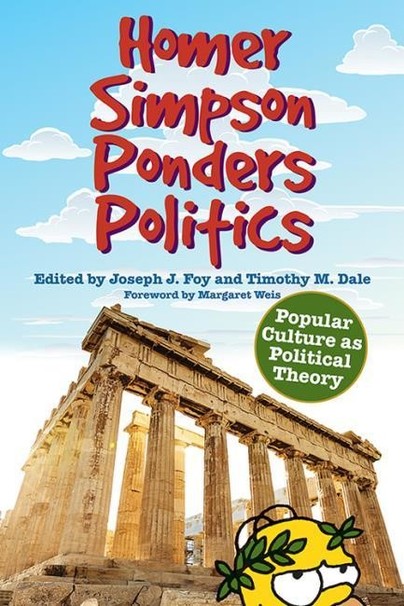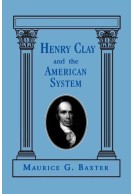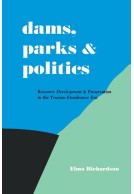Google Books previews are unavailable because you have chosen to turn off third party cookies for enhanced content. Visit our cookies page to review your cookie settings.
Homer Simpson Ponders Politics (Hardback)
Popular Culture as Political Theory
Imprint: University Press of Kentucky
Pages: 272
Illustrations: None
ISBN: 9780813141473
Published: 1st May 2013
Script Academic & Professional
Pages: 272
Illustrations: None
ISBN: 9780813141473
Published: 1st May 2013
Script Academic & Professional
This book will be reprinted and your order will be released in due course.
You'll be £32.00 closer to your next £10.00 credit when you purchase Homer Simpson Ponders Politics. What's this?
+£4.99 UK Delivery or free UK delivery if order is over £40
(click here for international delivery rates)
Order within the next 11 hours, 43 minutes to get your order processed the next working day!
Need a currency converter? Check XE.com for live rates
(click here for international delivery rates)
Order within the next 11 hours, 43 minutes to get your order processed the next working day!
Need a currency converter? Check XE.com for live rates
It is often said that the poet Homer "educated" ancient Greece. Joseph J. Foy and Timothy M. Dale have assembled a team of notable scholars who argue, quite persuasively, that Homer Simpson and his ilk are educating America and offering insights into the social order and the human condition.
Following Homer Simpson Goes to Washington (winner of the John G. Cawelti Award for Best Textbook or Primer on American and Popular Culture) and Homer Simpson Marches on Washington, this exceptional volume reveals how books like J. R. R. Tolkien's The Hobbit and J. K. Rowling's Harry Potter, movies like Avatar and Star Wars, and television shows like The Office and Firefly define Americans' perceptions of society. The authors expand the discussion to explore the ways in which political theories play out in popular culture. Homer Simpson Ponders Politics includes a foreword by fantasy author Margaret Weis (coauthor/creator of the Dragonlance novels and game world) and is divided according to eras and themes in political thought: The first section explores civic virtue, applying the work of Plato and Aristotle to modern media. Part 2 draws on the philosophy of Hobbes, Locke, Rousseau, and Smith as a framework for understanding the role of the state. Part 3 explores the work of theorists such as Kant and Marx, and the final section investigates the ways in which movies and newer forms of electronic media either support or challenge the underlying assumptions of the democratic order. The result is an engaging read for undergraduate students as well as anyone interested in popular culture.
Other titles in University Press of Kentucky...















